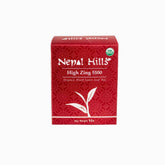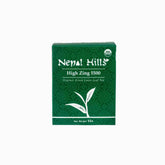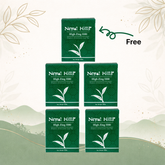White Tea vs Black Tea: Key Differences, Benefits, and How to Choose
Tea lovers worldwide often debate between two iconic tea types: white tea and black tea. Both come from the same plant, Camellia sinensis, yet differ greatly in taste, appearance, and health benefits. In this blog, we’ll explore what sets these teas apart and help you decide which one suits your taste and lifestyle.


What are White tea and Black tea?
White tea and black tea have delighted tea drinkers for centuries. While white tea is delicate and light, black tea offers a bold and robust flavor. The secret lies in how they’re processed after harvesting. Let’s dive deeper into their production.
How are White tea and Black tea harvested?
White tea harvesting process
White tea is harvested early in the spring when the buds are young and covered with fine white fuzz (trichomes), giving the tea its name. Only the top buds and two youngest leaves are hand-plucked to ensure premium quality. This careful process preserves the tea's subtle flavors.
Black tea harvesting process
Black tea is harvested later when the leaves are fully mature. While the same hand-picking method is used, the leaves are more developed. Black teas from different regions have unique taste profiles due to variations in climate and soil.
How are White tea and Black tea made?
White tea processing steps
White tea undergoes minimal processing to maintain its natural flavor:
- Withering: Leaves are spread out and allowed to wither naturally.
- Drying: They are either sun-dried or gently dried indoors to prevent oxidation.
Black tea processing steps
Black tea involves several processing stages that enhance its bold taste:
- Withering: Fresh leaves are spread out to reduce moisture.
- Rolling: Leaves are rolled to release essential oils.
- Oxidation: The leaves are fully oxidized, giving them a dark color.
- Drying: The leaves are dried to lock in their rich flavor.
Caffeine content: which tea has more?
- White Tea: Contains around 10-20 mg of caffeine per cup, making it ideal for evenings or anyone sensitive to caffeine.
- Black Tea: Contains approximately 40-60 mg per cup, offering a perfect energy boost for mornings or an afternoon pick-me-up.
Health benefits of White tea and Black tea
White Tea health benefits
- Rich in Antioxidants: Helps fight free radicals and slow aging.
- Skin and Hair Health: Promotes a youthful appearance.
- Calming Effect: Contains amino acids that reduce stress and promote relaxation.
Black Tea health benefits
- Heart Health: May reduce cholesterol and support heart function.
- Brain Stimulation: Boosts focus and mental alertness.
- Immunity Support: Contains compounds that strengthen the immune system.
Which tea should you choose?
Your choice depends on your taste preferences and lifestyle needs:
Choose White tea if:
✔️ You enjoy light, mild flavors.
✔️ You prefer lower caffeine.
✔️ You seek a relaxing, soothing beverage.
Choose Black tea if:
✔️ You love bold, robust flavors.
✔️ You need an energy boost.
✔️ You enjoy tea that pairs well with milk or sweeteners.
Discover premium White and Black teas from Nepal
Experience the true essence of tea with our single-source, high-altitude micro-batch white and black teas from Nepal. Hand-crafted by expert tea artisans, our teas offer an unmatched flavor experience.
👉 Ready to explore the best of Nepali teas? Order now from Nepalhillstea.ca.

Himalayan White Tea
Delight in the soft, floral notes with a subtle hint of wild rose in this exquisite white tea. The delicate flavor profile offers a smooth and fragrant tea experience, highlighting the unique characteristics of Nepalese high-altitude tea.
Get this White Tea
Classic Ruby Black Tea
Experience a strong woody flavor with distinct toasted bread notes. This exceptional tea offers a perfect balance of sweet and acidic flavors, delivering a complex and satisfying taste.
Get this Black Tea




